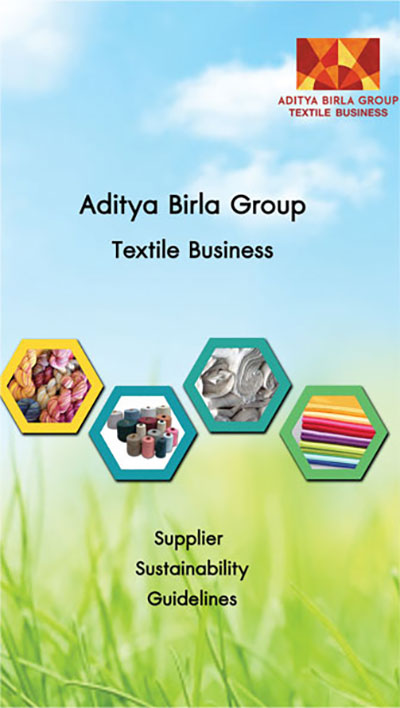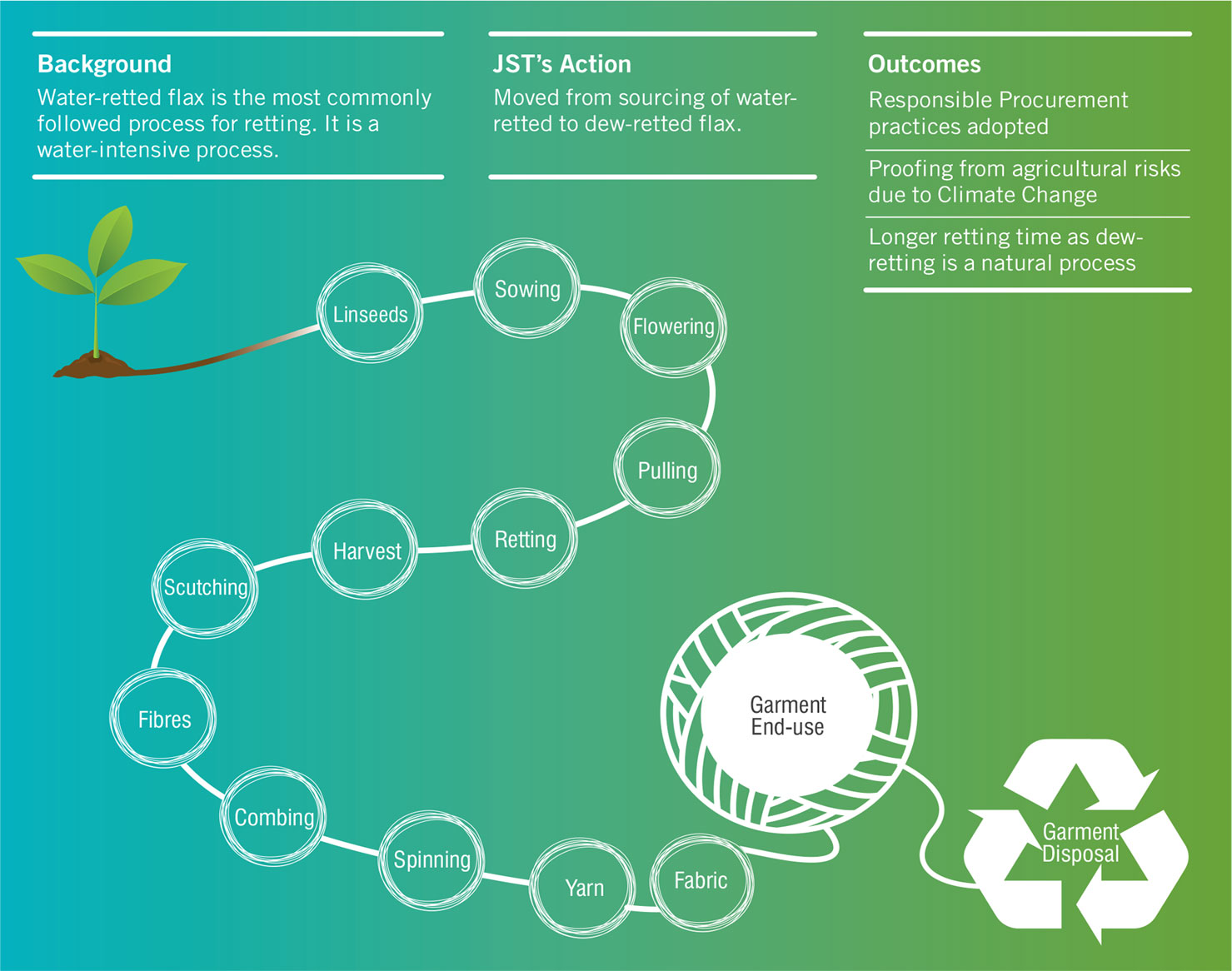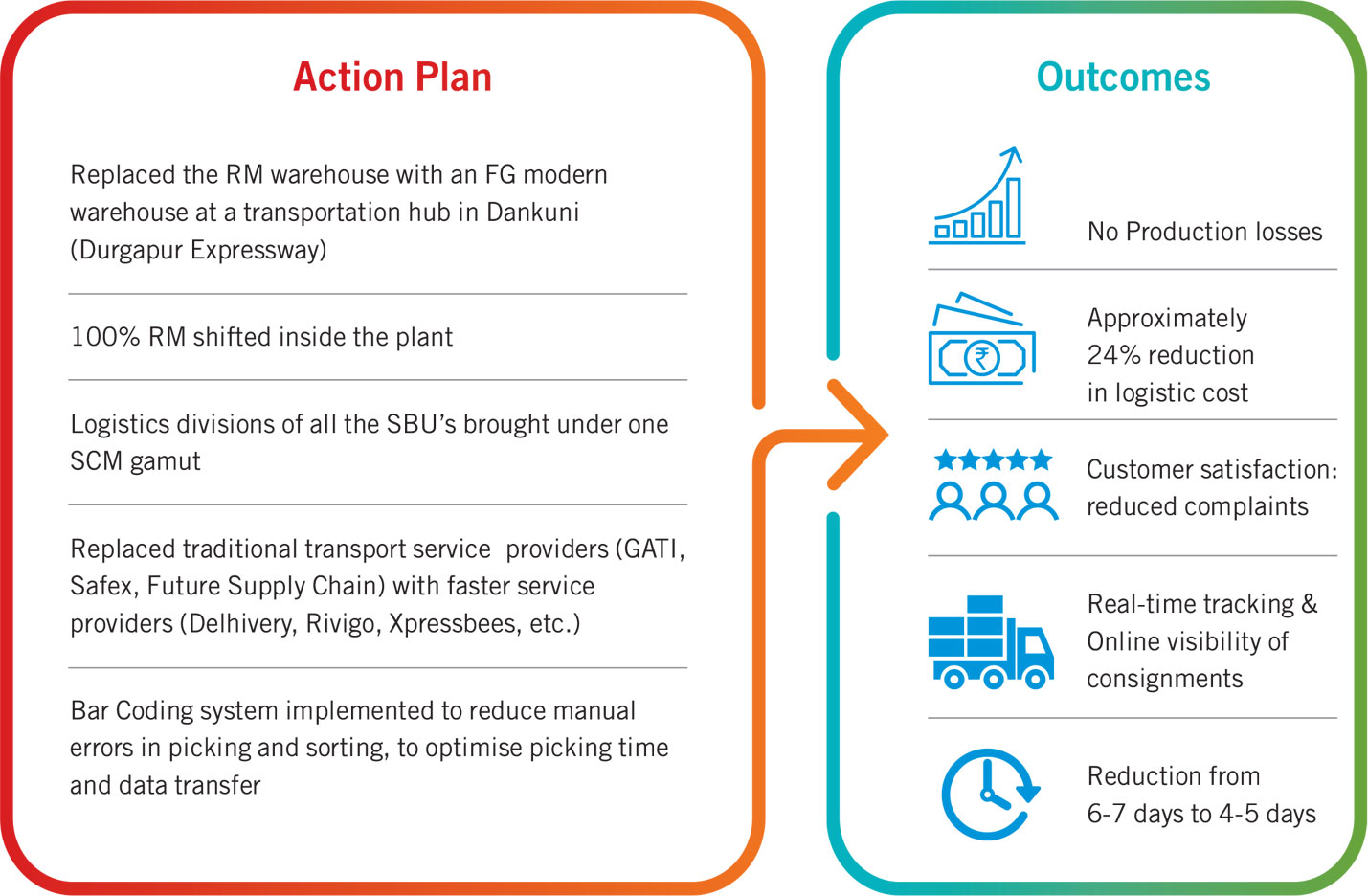At JST and VW, we are cognizant of the key risks and challenges embedded in the Supply Chain of our Textiles business. These pertain to challenges posed by climate change, ethical business, labour management and responsible procurement of raw materials. While there are challenges, there are also significant opportunities of establishing responsible business relationships with our suppliers. The guiding document which outlines the Standardized Operating Procedures for engaging with our supply chain is codified in our Supplier Code of Conduct for Aditya Birla Group Textiles Business. This detailed document establishes the sustainability expectation in our supply chain. We strongly urge our Tier-1 suppliers to work with their own suppliers and subcontractors to ensure their adherence to the principles of this Code of Conduct or an equally stringent set of principles. The four pillars of Supply Chain Management have been illustrated below:






